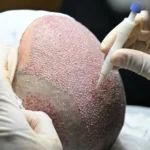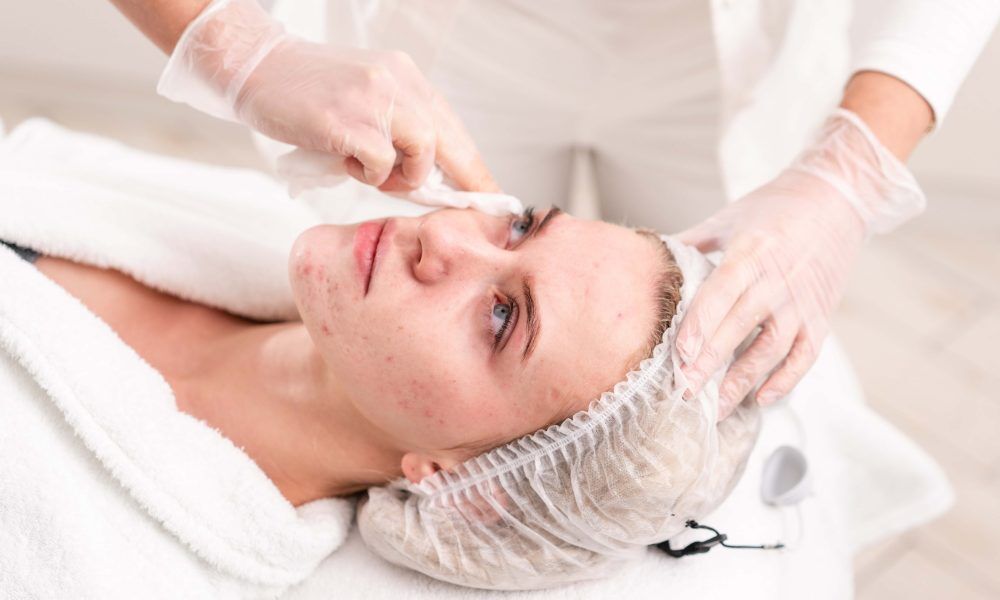Acne surgery is a specialized dermatological procedure aimed at treating persistent and severe acne. While many people are familiar with topical treatments and medications, acne surgery offers an alternative approach to tackling stubborn acne that doesn’t respond to conventional methods. This article delves into the essentials of acne surgery, including what it involves, its benefits, the types of procedures like cryotherapy, and factors to consider.
The Basics of Acne Surgery
Acne surgery is a procedure used to physically remove or treat acne lesions, often performed by dermatologists for those who have not found success with other treatments. It is typically recommended for individuals with severe acne types, including nodules and cysts, that can lead to long-term skin damage and scarring if untreated. While the term “surgery” might sound intimidating, acne surgery is often minimally invasive and focuses on specific areas of the skin, reducing the risk of widespread damage.
Types of Acne Surgery
Acne surgery isn’t a one-size-fits-all approach; it encompasses various methods tailored to different types of acne. Here are the primary techniques used:
- Extraction: In extraction, a dermatologist uses a small, sterile tool to remove blackheads, whiteheads, and other blockages from the pores. This process can be useful for individuals who struggle with recurring blockages. While some people attempt extractions at home, it’s essential to have a professional handle it to prevent skin irritation and scarring.
- Incision and Drainage: This procedure is used for larger, painful acne cysts. The dermatologist creates a small incision to drain the fluid, relieving discomfort and helping the area heal faster. This method is especially helpful for cystic acne, as it prevents the cysts from expanding and worsening.
- Cryotherapy: Cryotherapy, also referred to as “cold therapy,” is a procedure that uses liquid nitrogen to freeze and treat acne lesions. This process can help in reducing inflammation and shrinking the size of cystic acne. Cryotherapy works well for specific types of acne and is known for its quick application and effectiveness in reducing both the size and pain associated with cysts. However, it is best suited for certain cases, as it may cause temporary redness or skin sensitivity.
- Laser Treatment: In some cases, laser therapy is incorporated into acne surgery to reduce bacteria and inflammation. Different types of laser treatments target the root causes of acne, often killing bacteria and shrinking oil-producing glands. Laser treatments can be effective but usually require multiple sessions to achieve optimal results.
Benefits of Acne Surgery
For individuals who have exhausted other treatments, acne surgery can offer significant benefits. Here are a few advantages:
- Targeted Treatment: Acne surgery allows dermatologists to focus directly on problematic areas, which can result in faster healing and less inflammation.
- Reduced Scarring: Severe acne can lead to deep scars, which are often difficult to treat. Acne surgery can mitigate this risk by addressing cysts and nodules before they scar the skin.
- Pain Relief: For those with large, painful cysts, procedures like incision and drainage can relieve discomfort, making it easier to manage the condition on a day-to-day basis.
- Improved Skin Texture: Cryotherapy and laser treatments are beneficial for improving skin texture, particularly after treating larger lesions. Over time, these methods can lead to smoother, clearer skin.
Cryotherapy: A Closer Look
Cryotherapy is a distinctive method within acne surgery, offering a unique approach to treating acne lesions, particularly cystic acne. During the procedure, a dermatologist uses liquid nitrogen to freeze the acne-affected area. The freezing process effectively reduces inflammation, helping the lesion to diminish in size and reducing the risk of future breakouts in the same area.
Benefits of Cryotherapy for Acne
Cryotherapy is valued for its quick results and minimal invasiveness. It’s also an efficient option for treating stubborn cysts that don’t respond to typical treatments. By freezing the cyst, cryotherapy reduces its size and pain within a short period, often requiring only one session. Another notable benefit of cryotherapy is its ability to reduce pigmentation and redness associated with acne, contributing to an overall clearer complexion. However, while cryotherapy can be highly effective, it’s generally not suitable for all acne types, making a consultation with a dermatologist essential before opting for this treatment.
Considerations Before Opting for Acne Surgery
Before undergoing any form of acne surgery, it’s essential to understand that it may not be suitable for everyone. Here are some factors to consider:
- Skin Type and Sensitivity: Certain skin types may respond better to some treatments than others. For example, sensitive skin may experience temporary redness or irritation after cryotherapy.
- Type of Acne: Acne surgery is often more effective for severe acne, such as cysts and nodules. Mild acne may not require surgery and could benefit more from less invasive treatments.
- Post-Procedure Care: Following acne surgery, patients need to follow specific aftercare instructions, including avoiding sun exposure, using gentle skincare products, and following up with their dermatologist as advised. Post-procedure care is critical for ensuring the treated area heals without complications.
- Possible Side Effects: While acne surgery is generally safe, there are potential side effects to consider. Cryotherapy, for instance, may cause mild discomfort, temporary discoloration, or redness in the treated area.
Is Acne Surgery Right for You?
Acne surgery offers a promising solution for those struggling with severe or treatment-resistant acne. By addressing cysts, nodules, and other stubborn lesions, acne surgery helps reduce inflammation, scarring, and discomfort. Procedures like cryotherapy are ideal for individuals seeking a targeted approach that can provide relief from persistent acne. If you’re considering acne surgery, it’s important to consult with a dermatologist to discuss which methods align best with your skin type and acne severity.
By understanding the various options, benefits, and potential risks, individuals dealing with severe acne can make informed choices to achieve clearer, healthier skin.

 Autism Therapy Programs Supporting Communication and Social Developments
Autism Therapy Programs Supporting Communication and Social Developments  From Burnout To Balance: How Weight, Motherhood, And Heart Health Intersect
From Burnout To Balance: How Weight, Motherhood, And Heart Health Intersect  Significance Of FUT+FUE+BHT Combine Technique & How Is It Done?
Significance Of FUT+FUE+BHT Combine Technique & How Is It Done?  Lifestyle Changes That Could Help Lessen the Effects of Alzheimer’s
Lifestyle Changes That Could Help Lessen the Effects of Alzheimer’s  Bodyweight Basics: The Best No-Equipment Exercises for Beginners
Bodyweight Basics: The Best No-Equipment Exercises for Beginners  THC Gummies vs THC Tinctures – Which works faster?
THC Gummies vs THC Tinctures – Which works faster?  What Are the Best Treatment Options for Diabetic Retinopathy?
What Are the Best Treatment Options for Diabetic Retinopathy?  Is it Safe to Get a Massage While Pregnant?
Is it Safe to Get a Massage While Pregnant?  Maximize Your Fitness Goals: How a Personal Trainer Can Help You Achieve Lasting Results
Maximize Your Fitness Goals: How a Personal Trainer Can Help You Achieve Lasting Results 